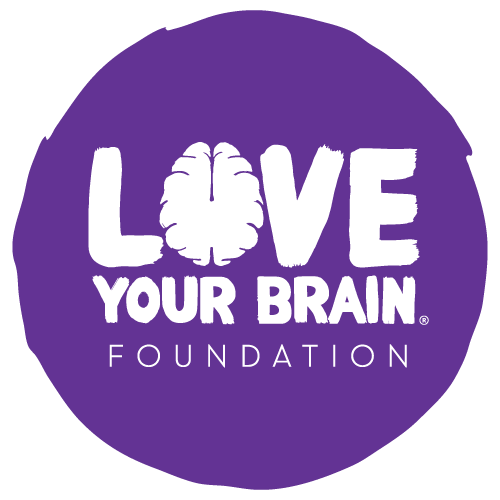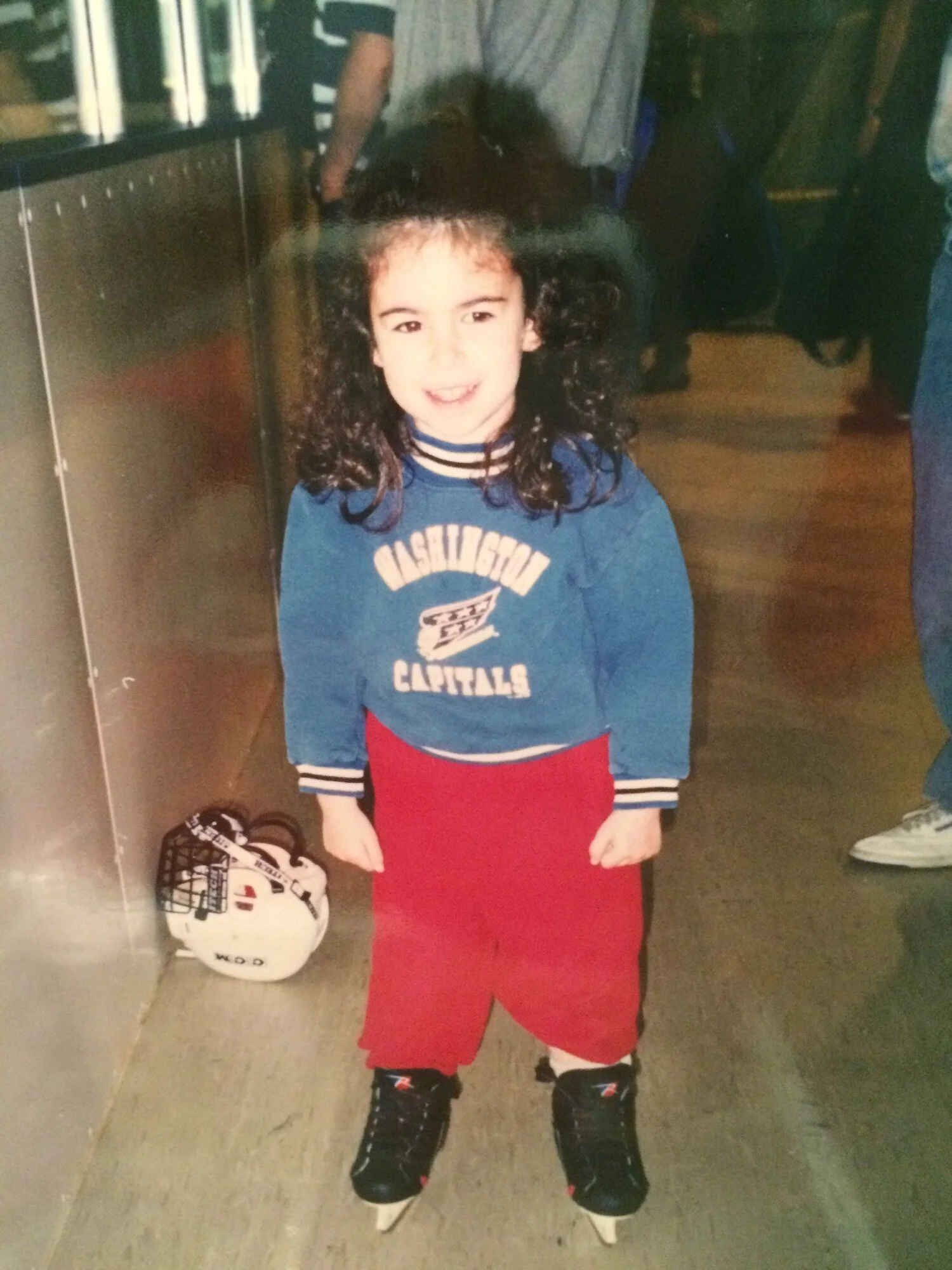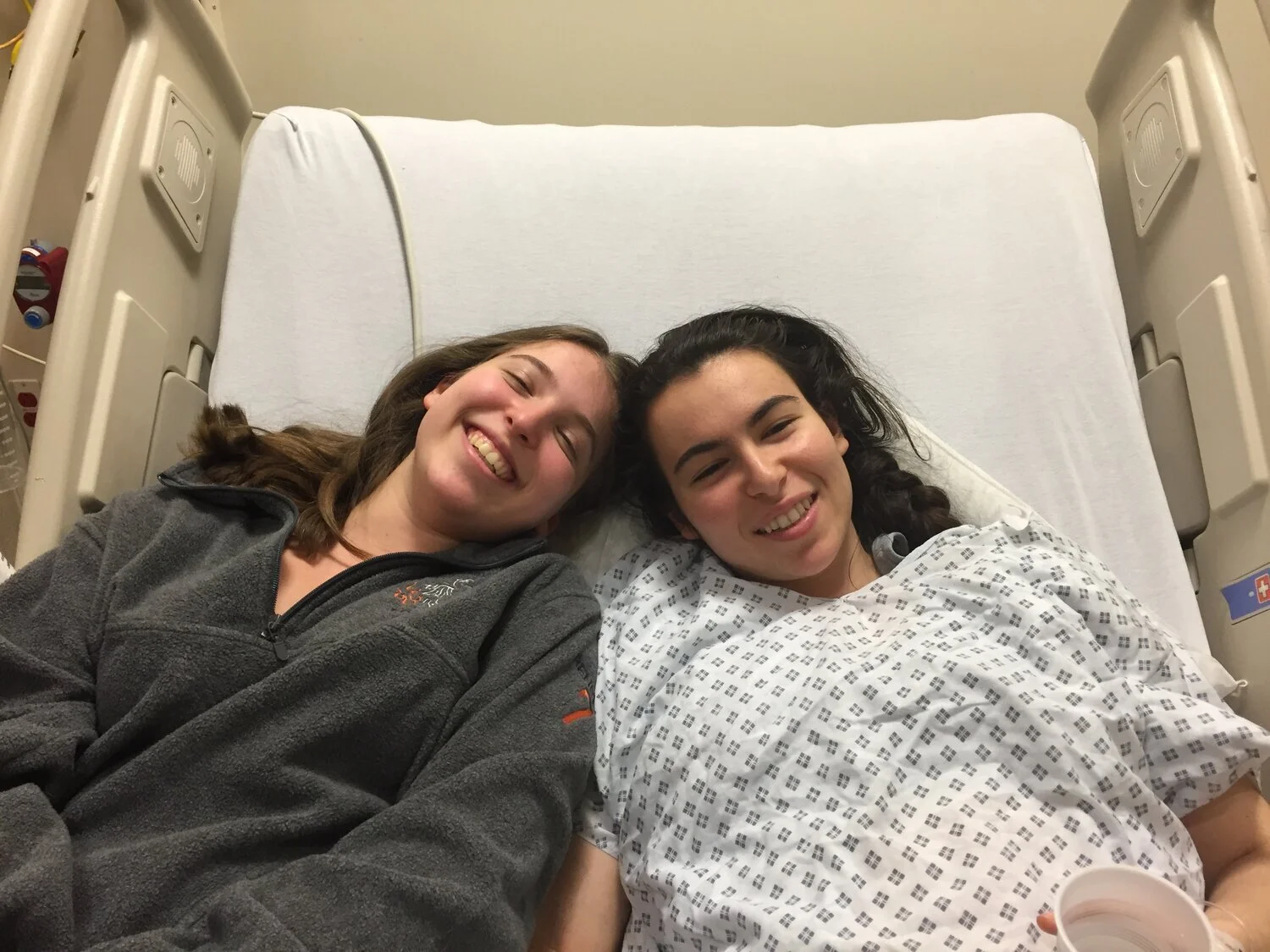The First Step Is Always Getting Up By Sarah Renberg
4 year old me at the local rink learning to skate in 2002.
Before I got hurt, I was an ice hockey player. For a long time, it was how I defined myself. I started skating as a toddler. I wanted to be just like my big brother. In the first lesson, they teach you how to fall.
Failure is not only expected, it is encouraged.
The coaches want you to be able to do it safely, instructing you to land on your knees. Then, they teach you how to get up by digging your edges into the ice so that you can push up to get back on your feet.
If you have ever been to your local rink, you can distinguish the “learn to skate” class from the others because they spend the majority of the time on their butts. This is because it is far easier to fail and fall than it is to get back up.
As you progress through each class, you become more confident on the ice and learn new skills. I vividly remember practicing my “hockey stops” and “swizels,” getting comfortable with the basic edge work that would later become second nature. With each new skill, there is a period of assured failure. Doesn’t matter if you are 4 or a promising college hockey recruit. You hit the ice hard but then, you get up; that part, the process of getting up, stays the same. It gets easier every time you do it. Once you’re 7 or 8, you can do it quickly, in hot pursuit of a puck.
I think this concept translates well to dealing with a brain injury. The falls are quick and failures abundant. There are lessons to be learned, and resilience is the key to coming out the other side. Resilience, put simply, is the ability to bounce back - to face adversity and thrive. I think it’s an innate skill deep within all of us. Something we can cultivate. Something that gets built up over time - with every stumble.
Me with my younger sister in the hospital. My family’s support has been critical throughout this whole process.
It is mastering the art of getting up.
For me personally, I don’t think it was ever a conscious decision: Be resilient.
I was just thrown into a situation, sustaining a brain injury at the beginning of my junior year of high school and then I never let myself think expectations would be altered. I felt that I was still expected to get into a good college, earn that college degree, become self-sufficient, and achieve the things I had always talked about doing.
As crazy as it may sound, it took almost 18 months before I realized that my plan to be a college athlete wouldn’t be possible. I’d be lucky to be able to tolerate any sort of sustained upright cardiovascular activity, like a light jog, thanks to the severe autonomic nervous system dysfunction I developed post injury.
Since my expectations for myself didn’t waver, the only thing to do was grit my teeth and grind - not unlike all those years of training as an athlete. I threw myself into every form of therapy at full throttle. It was the only thing I could do. I clung to each opportunity to regain the smallest semblance of control in what felt like an otherwise tumultuous situation.
There were darker times during my recovery; I couldn’t stand up for more than a few minutes (let alone walk confidently around the block), struggled to keep solid food down, would get frighteningly disoriented navigating my high school’s hallways, and couldn’t read at an adult level but still had to pass 12th grade English. When I tell people this now, they marvel at my ability to have gotten through it.
Working on some of my vision and hand/eye coordination skills with the peg board at therapy.
I’m honestly never sure what to say in response.
I got through it because I couldn’t fathom the alternative. It was my life. That was the situation. It never occured to me to give up or not try. I wanted my life back - or at least a life I could be happy and satisfied living. It wasn’t easy. There were tears, shouting, and days where everything hurt, but I still had things I wanted to accomplish.
I knew that for every fall, you dig in your edges and get back up.
Once when I was asked, I likened living with my brain injury to running up the down escalator. You have to scramble quickly up, working twice as hard to get half as far, and if you stop, you end up right back where you started. It is exhausting. But, it is possible to get up that way.
I did just that. I just started my third year at the University of Michigan in the LSA Honors Program, majoring in neuroscience with a plan to minor in entrepreneurship. I work in the University’s Neurotrauma Laboratory as an undergraduate research assistant, where I actively play a role in researching brain injuries. I am currently helping on a project exploring a new diagnostic technology involving spectroscopy. I am also training for the Detroit City ½ Marathon on October 20th where I will be running to raise money for LoveYourBrain’s life-changing retreat programs. I’ve started to get into rock climbing and enjoy many of the stereotypical experiences college life has to offer.
Outside the Big House on game day at Michigan rocking some special green tinted glasses with some of my best friends on campus.
Recovery has been ongoing for the last 5 years, painstakingly slow at times, with some massive setbacks as I have started college, and as I write this, at 9pm on a Monday, my visual acuity is dwindling. The key to getting from a low (double vision /other vision issues, daily vomiting, vertigo, a rigid right side, no cervical mobility, and no blood pressure - to name a few things) to how I am now is to just get out of bed.
Even when it hurts. When you can’t see the point. When you need assistance to do so. Even if it means an onslaught of tachycardia and vertigo.
Get up.
Tell yourself you can get through the next 15 minutes. Then the 15 minutes after that.
Learn strategies to improve your situation - attack it with a growth mindset.
Plan your day. Be open to the unexpected. Be kind to yourself as you encounter each hurdle. Adjust your definition of failure. Find a mentor.
My housemates and I during the first weekend of the school year this year. Finding great friends who do their best to understand and support me has been essential. There is never a dull moment with this crew.
Kevin and I playing guitar together at the LYB retreat in Vermont. Kev knows way more guitar than me but struggles with some of the hand movements so together we make one fantastic musician.
Be mindful.
Practice gratitude - focus on everything that is good in that moment.
Rely on others.
Those last 3, I got from LoveYourBrain.
My involvement with LoveYourBrain has taught me that mindfulness holds the key to productive reactions, gratitude is an imperative practice for uninhibited joy and a more full life, and that there is resilience in connection.
The great Adam Pearce, now someone I consider a friend, signs every email with a Viktor E. Frankel quote: “Between stimulus and response there is a space. In that space is our power to choose our response. In our response lies our growth and our freedom.” I believe the space that’s alluded to is navigated through mindfulness - practicing active self awareness, and choosing to cultivate and act on our own aptitude for resilience.
We have the ability to choose the lense through which we view each instance. Learning to practice gratitude has created a massively beneficial perspective shift in my life. It makes getting up each day easier.
In June I ran my first 5k where I could see single and clear the whole time and had my heart rate in check. It was a HUGE deal for me and I loved that I got to do it alongside my big brother who’s had my back at every point in this journey.
Lastly, and perhaps most importantly lies the reason I was inspired to run 13 miles without a properly functioning autonomic nervous system to support LoveYourBrain’s retreat programs: there is resilience in connection. Find your team and leverage that support. I wouldn’t be able to be at Michigan or able to run without the incredible support I have received from my friends, family, and the LoveYourBrain Community.
So fail. Fall. And dig in those edges. Then, get back to chasing the puck.
Me mid competition competing in the Zeno Gauntlet with all of my LYB friends. Adam Pearce said to get muddy and I listened :).
On Sunday, October 20th, Sarah Renberg ran and completed the Detroit Half Marathon. Follow her fundraising and marathon success by clicking here.








